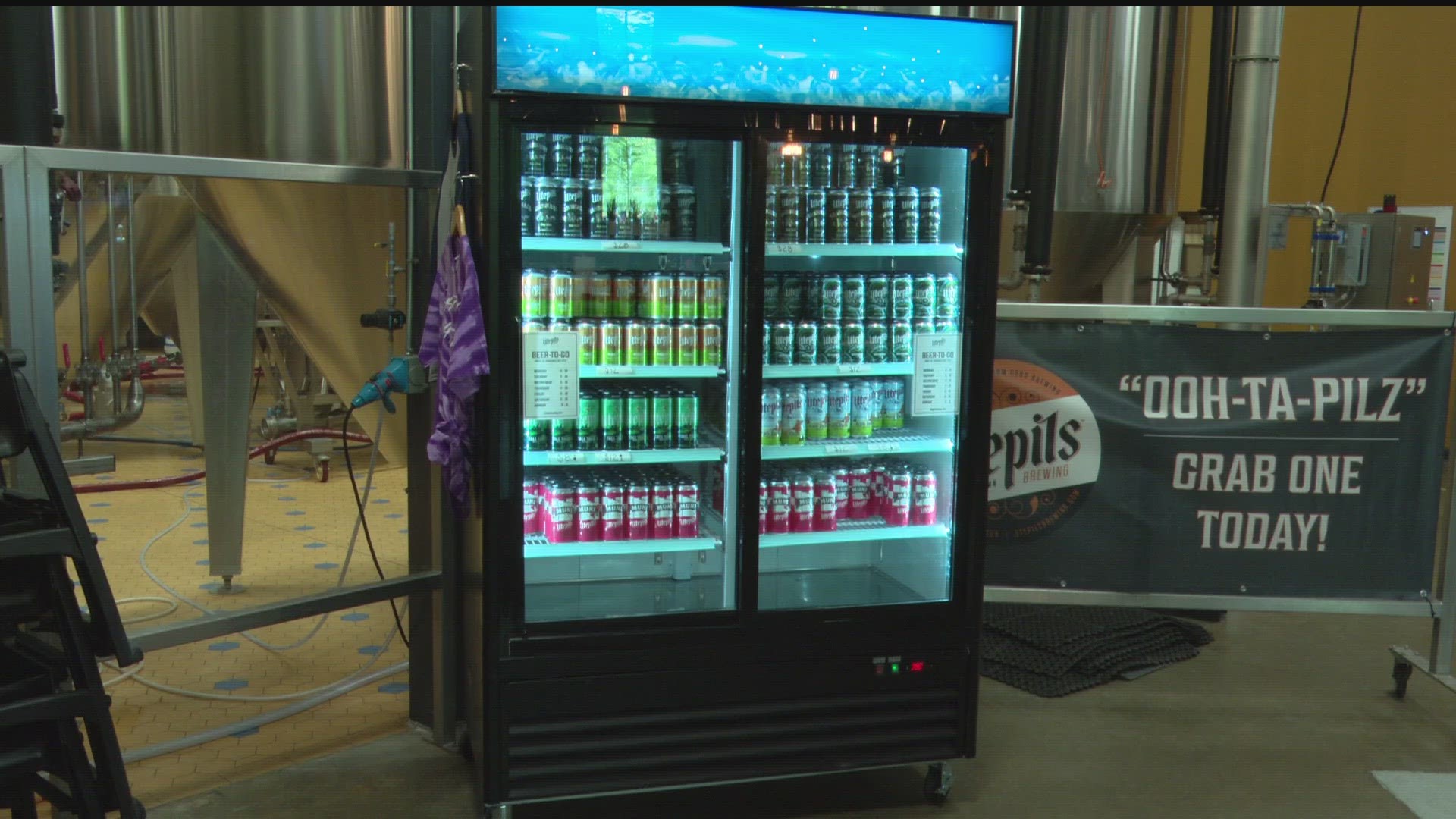MINNEAPOLIS — Minnesota's craft brewers actually sought more regulations of THC-infused beverages as part of the adult-use cannabis bill, and came away very happy with the legislation Gov. Walz signed into law.
It sets firm ground rules around who can make and sell low-dose hemp-derived THC drinks. It also expands the market for those beverages because the same bill allows liquor stores to sell them for the first time.
"It's not every day you approach legislators and say, 'Can we get more taxes? Can we get more regulations?' but at the end of the day, our members wanted to make sure we were doing this in a legitimate and solidified way," Bob Galligan of the Minnesota Craft Brewers Guild told KARE.
"Not quite everyone realizes just how revolutionary the actual low-dose, hemp-derived market is that we have in Minnesota."
The bill added a 10 percent state tax on those beverages. And, more importantly for the brewers, distinguished the difference between hemp-derived products and those made from marijuana.
"It recognized hemp as a federally legal product. We as brewers would not be able to sell a marijuana product. That would be federally illegal," Dan Justesen, who owns and operates Utepils Brewing in Minneapolis, explained.
"The bill recognized what we were doing uniquely in Minnesota and kept it alive, allowing a lot of very small breweries like us to have a foot in the door and stay in the door."
Utepils waded cautiously into the THC beverage game last year after hemp-derived products were legalized. The company started with a 16-ounce key lime-flavored seltzer containing 4 milligrams of THC from hemp, branded as "Bandwagon" in recognition of being a little late to join the trend.
"We saw the consumers liked it, wanted it and were buying, and so we looked at the reality we had coming out of COVID and dollars in means we stay open," Justesen explained.
"The legal serving size in Minnesota is 5 milligrams, so again, that’s us being a little bit conservative with how it started. The majority of Minnesotans, this was going to be a very new experience for them, or one they may not have had for a few decades. So, we thought giving them something that’s just gonna make them feel happy and not out of it was the way for us to go."
There weren't many regulations in place other than dosage levels, but the state lacked the capacity to routinely test for content. Just about anyone could sell something called a THC beverage, except for liquor stores
Justesen says it makes sense for liquor retailers to sell these products because, like craft brewers, they're used to dealing with safety regulations such as verifying the ages of the customers.
Utepils launched Bandwagon packaged to consume off premises, in cans. But the brewery can also serve them for on-premises consumption, too. The only wrinkle with serving it to customers is that it creates new issues with insurers.
Justesen said he was notified this week that a separate type of insurance policy will be needed to cover the liability of letting customers consume THC beverages while on the property.
"This is a whole new area for insurance companies. They're used to having modeling for the risks involved in serving alcoholic beverages, but they don't really have any modeling for THC beverages."
It will take at least a year for the newly created Minnesota Office of Cannabis Management to get up and running, and issue state licenses to new players in the recreational cannabis industry.
Brewers already selling legal THC beverages were allowed to keep doing that but must register with the Minnesota Dept. of Health so the state can begin to get a better picture of the THC landscape in the state.
"This was a very needed correction to last year’s situation, where the rules were no rules. I think, from our industry in alcohol it was very, very important for the consumer to feel safe and confident in the products, and the way they’re marketed."
The state's testing infrastructure isn't in place yet, but Utepils is erring on the side of caution. Each time a new batch of Bandwagon it produced, samples are sent to a lab to THC levels and to ensure it's made from hemp.
After the content and dosage is confirmed, the carbonation is added, and it runs through the canning process. The automated equipment brewers already have in place for beer gives them an advantage over some that are just getting into the THC beverage business.

